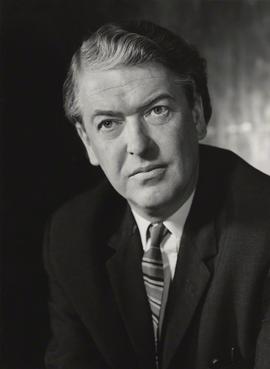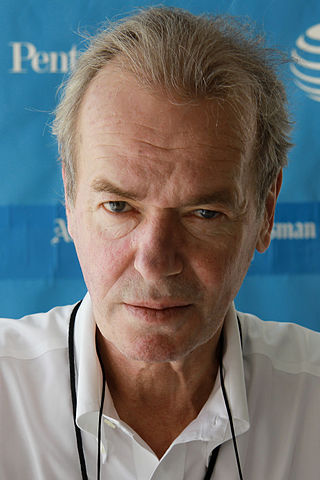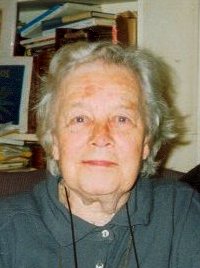
Sir Kingsley William Amis was an English novelist, poet, critic and teacher. He wrote more than 20 novels, six volumes of poetry, a memoir, short stories, radio and television scripts, and works of social and literary criticism. He is best known for satirical comedies such as Lucky Jim (1954), One Fat Englishman (1963), Ending Up (1974), Jake's Thing (1978) and The Old Devils (1986).

Thomas Stearns Eliot was a poet, essayist and playwright. He is considered to be one of the 20th century's greatest poets, as well as a central figure in English-language Modernist poetry. His use of language, writing style, and verse structure reinvigorated English poetry. He is also noted for his critical essays, which often re-evaluated long-held cultural beliefs.

Sir Martin Louis Amis was an English novelist, essayist, memoirist, screenwriter and critic. He is best known for his novels Money (1984) and London Fields (1989). He received the James Tait Black Memorial Prize for his memoir Experience and was twice listed for the Booker Prize. Amis was a professor of creative writing at the University of Manchester's Centre for New Writing from 2007 until 2011. In 2008, The Times named him one of the 50 greatest British writers since 1945.
Stylistics, a branch of applied linguistics, is the study and interpretation of texts of all types, but particularly literary texts, and/or spoken language in regard to their linguistic and tonal style, where style is the particular variety of language used by different individuals and/or in different situations or settings. For example, the vernacular, or everyday language may be used among casual friends, whereas more formal language, with respect to grammar, pronunciation or accent, and lexicon or choice of words, is often used in a cover letter and résumé and while speaking during a job interview.
In most contexts, the concept of good denotes the conduct that should be preferred when posed with a choice between possible actions. Good is generally considered to be the opposite of evil and is of ethics, morality, philosophy, and religion. The specific meaning and etymology of the term and its associated translations among ancient and contemporary languages show substantial variation in its inflection and meaning, depending on circumstances of place and history, or of philosophical or religious context.

The Man Who Was Thursday: A Nightmare is a 1908 novel by G. K. Chesterton. The book has been described as a metaphysical thriller.

Libertarianism is one of the main philosophical positions related to the problems of free will and determinism which are part of the larger domain of metaphysics. In particular, libertarianism is an incompatibilist position which argues that free will is logically incompatible with a deterministic universe. Libertarianism states that since agents have free will, determinism must be false and vice versa.

Sir Geoffrey William Hill, FRSL was an English poet, professor emeritus of English literature and religion, and former co-director of the Editorial Institute, at Boston University. Hill has been considered to be among the most distinguished poets of his generation and was called the "greatest living poet in the English language." From 2010 to 2015 he held the position of Professor of Poetry in the University of Oxford. Following his receiving the Truman Capote Award for Literary Criticism in 2009 for his Collected Critical Writings, and the publication of Broken Hierarchies , Hill is recognised as one of the principal contributors to poetry and criticism in the 20th and 21st centuries.
Craig Anthony Raine, FRSL is an English contemporary poet. Along with Christopher Reid, he is a pioneer of Martian poetry, a movement that expresses alienation with the world, society and objects. He was a fellow of New College, Oxford, from 1991 to 2010 and is now emeritus professor. He was the editor of Areté from 1999 to 2020.

Kathleen Jessie Raine was a British poet, critic and scholar, writing in particular on William Blake, W. B. Yeats and Thomas Taylor. Known for her interest in various forms of spirituality, most prominently Platonism and Neoplatonism, she was a founding member of the Temenos Academy.
The term New Oxford Wits was applied, around 1980, to a group of young English writers who had been at the University of Oxford in the 1970s. It alludes to the Oxford Wits of the 1920s. Those supposed to be in the New Oxford Wits were Martin Amis, Julian Barnes, Tina Brown, James Fenton, Ian Hamilton and Craig Raine.
James Martin Fenton is an English poet, journalist and literary critic. He is a former Oxford Professor of Poetry.

Christopher John Reid, FRSL is a British poet, essayist, cartoonist, and writer. In January 2010 he won the 2009 Costa Book Award for A Scattering, written as a tribute to his late wife, the actress Lucinda Gane. Beside winning the poetry category, Reid became the first poet to take the overall Costa Book of the Year since Seamus Heaney in 1999. He had been nominated for Whitbread Awards in 1996 and in 1997.

London Fields is a blackly comic murder mystery novel by the British writer Martin Amis, published in 1989. The tone gradually shifts from high comedy, interspersed with deep personal introspections, to a dark sense of foreboding and eventually panic at the approach of the deadline, or "horror day", the climactic scene alluded to on the very first page.
Jonathan Fletcher Wordsworth was an English academic, literary critic and expert on the Romantic era in literature.

The Lucy poems are a series of five poems composed by the English Romantic poet William Wordsworth (1770–1850) between 1798 and 1801. All but one were first published during 1800 in the second edition of Lyrical Ballads, a collaboration between Wordsworth and Samuel Taylor Coleridge that was both Wordsworth's first major publication and a milestone in the early English Romantic movement. In the series, Wordsworth sought to write unaffected English verse infused with abstract ideals of beauty, nature, love, longing, and death.
Sesshu Foster is an American poet and novelist.

The War of the Worlds is a science fiction novel by English author H. G. Wells. It was written between 1895 and 1897, and serialised in Pearson's Magazine in the UK and Cosmopolitan magazine in the US in 1897. The full novel was first published in hardcover in 1898 by William Heinemann. The War of the Worlds is one of the earliest stories to detail a conflict between humankind and an extraterrestrial race. The novel is the first-person narrative of an unnamed protagonist in Surrey and his younger brother who escapes to Tillingham in Essex as London and southern England is invaded by Martians. It is one of the most commented-on works in the science fiction canon.

The T. S. Eliot bibliography contains a list of works by T. S. Eliot.










